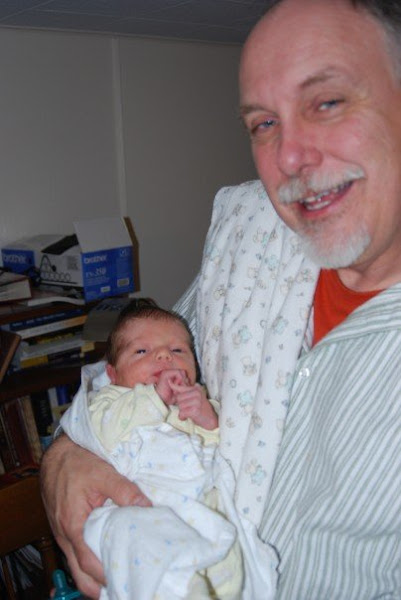Man, it's been a long time since I blogged here. Anybody out there still reading?
I just spent a week at the Northumbria Community in England. About a dozen people at my church are following the daily prayer pattern from there, so I wanted to go and see what it was like.
I haven't got space to describe this Community, so the best way to get oriented is to go to www.northumbriacommunity.org.
People have been saying, "So, how was it? What did you do? What did you learn?" And to be honest, it's hard to describe. This is a community of people that consists of about 7 or 8 who live full time in a 15th century manor house in the English countryside, and who build their days around four times of prayer -- and 250 or so "companions" scattered throughout the UK, plus a few in the US.
But I grasped a couple of things relevant to this blog about the "untied church." These folks are really untied. They don't travel anywhere to worship. They don't hold "church services" at the house. Sundays are days like every other, structured around morning, midday, evening and nighttime offices.
Which seems to be a growing phenomenon in Britain. My impression is that lots of people are living lives of disciplined Christian spirituality, prayer and service, but are not connected to congregations in traditional ways. I also suspect that they're flying completely under the radar of the statisticians who tell us that Christianity is dying in Britain because only 5% of British bottoms are in British pews on a given Sunday morning.
I also met a young woman who's part of a home-based church plant in Leeds consisting of families who gather on Sunday for a shared meal, and a selection of Scripture reading, prayer, discussion, personal reflection and whatever else comes up.
The point made to me by several people is that the whole weight of the Christian life is not loaded onto a 10:30 a.m. worship service and a busy round of church activities.
There's a definite downside to this. It felt a little bit loosey-goosey to me, and I wondered how much staying power some of these "fresh expressions" are going to have -- whether they will be able to nurture a faith that is more than ephemeral. Like it or not, we have institutions so that we won't have to be continually reinventing the wheel. It remains to be seen whether some post modern expressions of Christianity will be around long enough even to evolve.
But, the Northumbria Community is in its fourth decade and shows no signs of doing anything other than attracting more and more people to its brand of prayer-based spiritual life, focused on the two values of "availability and vulnerability." And, home based Christian communities are the original form of the church.
I'm interested in what's going on in England because I see it as a bit of glimpse into the future for us in Canada -- a couple of generations down the road of church decline and secularism. My wife and I are going back in June as part of a sabbatical to experience more deeply some of the ferment that is happening there, and to add to our reflections about a church that is increasingly "untied" from modern denominationally based structures.
Subscribe to:
Post Comments (Atom)


No comments:
Post a Comment